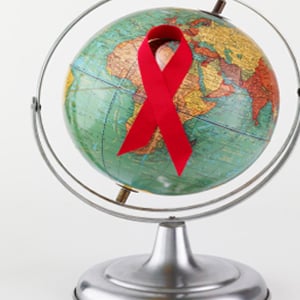
Treating people with HIV rapidly after they have become infected with the virus that causes Aids may be enough to achieve a "functional cure" in a small proportion of patients diagnosed early, according to new research.
Scientists in France who followed 14 patients who were treated very swiftly with HIV drugs but then stopped treatment found that even when they had been off therapy for more than seven years, they still showed no signs of the virus rebounding.
How the was done
The research, published in the journal PLoS Pathogens, follows news earlier this month about a baby girl in Mississippi in the United States being effectively cured of the human immunodeficiency virus (HIV) after receiving very early treatment.
Christine Rouzioux, a professor at Necker Hospital and University Paris Descartes and a member of the initial team who identified HIV 30 years ago, said the new results showed the number of infected cells circulating in the blood of these patients, known as "post-treatment controllers," kept falling even without treatment for many years."
Early treatment to control infection
Early treatment in these patients may have limited the establishment of viral reservoirs, the extent of viral mutations, and preserved immune responses. A combination of those may contribute to control infection in post-treatment controllers," she said.
"The shrinking of viral reservoirs ... closely matches the definition of 'functional' cure," she said. A functional cure describes when the virus is reduced to such low levels that it is kept at bay even without continuing treatment. The virus, however, is still detectable in the body.
Most of the some 34 million people with HIV across the world will have to take anti-Aids drugs known as antiretroviral therapy for the whole of their lives. These drugs generally keep the disease in check but also have side effects and a high cost impact on health systems.
Number of people infected with HIV globally
Worldwide, the number of people newly infected with HIV, which can be transmitted via blood and by semen during sex, is falling. At 2.5 million, the number of new infections in 2011 was 20% lower than in 2001, according to the United National Aids programme (UNAIDS).
And deaths from AIDS fell to 1.7 million in 2011, down from a peak of 2.3 million in 2005.Asier Saez-Cirion, a senior HIV researcher at the Institut Pasteur in Paris, said that although most patients will not be able to control HIV, these results suggest that at least some may be able to if they get treatment early enough.
"(This data) and the Mississippi study strongly support early treatment initiation and may hold important clues for the development of a strategy to cure HIV or at least induce a long-term control without the need of antiretroviral treatment," he said.




 Publications
Publications
 Partners
Partners















